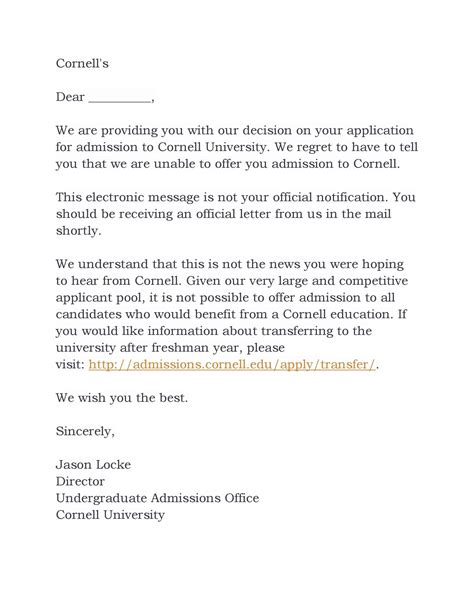Getting into medical school is a highly competitive process, and the interview is a crucial part of the admissions process. While a strong interview can help you stand out from the crowd, a weak interview can hurt your chances of getting accepted. There are several reasons why people may get rejected after the medical school interview.

1. Lack of Preparation
One of the most common reasons for rejection is a lack of preparation. Many applicants fail to adequately prepare for their interviews, which can lead to poor performance. It is important to do your research and practice answering common interview questions. You should also be familiar with the school’s mission and values, and be able to articulate why you are a good fit for the program.
2. Poor Communication Skills
Communication skills are essential for success in medical school. During the interview, you will need to be able to communicate clearly and effectively with your interviewers. This includes being able to answer questions succinctly and confidently, and being able to ask thoughtful questions of your own. Poor communication skills can make it difficult for interviewers to get to know you and assess your potential for success.
3. Lack of Enthusiasm
Medical schools are looking for students who are passionate about medicine. If you do not come across as enthusiastic about the field, it will be difficult for interviewers to believe that you are genuinely interested in pursuing a career in medicine. Show your passion by talking about your experiences in healthcare, and explain why you are excited about the prospect of becoming a doctor.
4. Unprofessional Behavior
It is important to be professional during your interview. This means dressing appropriately, arriving on time, and being respectful of your interviewers. Unprofessional behavior can make a negative impression on interviewers and hurt your chances of getting accepted.
5. Lack of Fit
Medical schools are looking for students who are a good fit for their program. This means not only having the academic qualifications, but also the personal qualities and values that align with the school’s mission. If you do not seem to be a good fit for the school, it is less likely that you will be accepted.
How to Avoid Rejection
There are several things you can do to avoid rejection after the medical school interview.
- Prepare thoroughly. Do your research and practice answering common interview questions.
- Develop strong communication skills. Practice speaking clearly and confidently, and be able to ask thoughtful questions.
- Show your enthusiasm. Talk about your experiences in healthcare, and explain why you are excited about the prospect of becoming a doctor.
- Be professional. Dress appropriately, arrive on time, and be respectful of your interviewers.
- Be yourself. The admissions committee wants to get to know the real you. Don’t try to be someone you’re not.
Conclusion
Getting rejected after the medical school interview can be a disappointing experience. However, it is important to remember that there are many reasons why people get rejected. By understanding these reasons and taking steps to avoid them, you can improve your chances of getting accepted to the medical school of your choice.
Additional Tips
- Get feedback from your interviewers. If you are rejected, ask for feedback so that you can improve your performance for future interviews.
- Don’t give up. If you are rejected from one medical school, don’t give up on your dream of becoming a doctor. There are many other medical schools out there, and you will eventually find one that is a good fit for you.
- Consider reapplying. If you are rejected, you can consider reapplying to the same school or to other medical schools. However, it is important to make sure that you have addressed the reasons for your rejection before reapplying.
Resources
- The Association of American Medical Colleges (AAMC)
- The American Medical Student Association (AMSA)
- The Student National Medical Association (SNMA)
